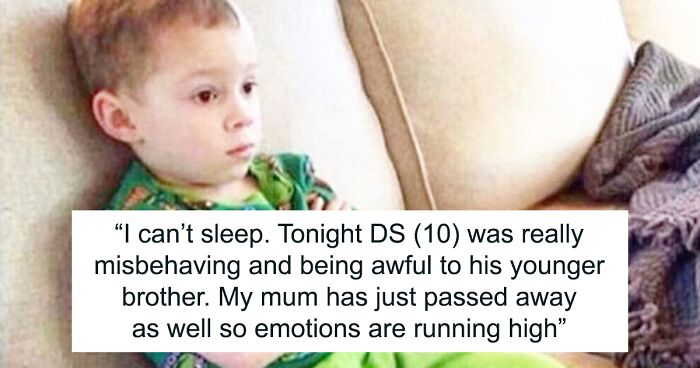
Exhausted Mom Blurts Out That She Hates Her Son And He Accidentally Overhears It, To Her Dismay
Interview With ExpertI believe most people would agree that parenting is hard. Parents probably would agree more, but also people who don’t have kids yet, I am sure, wouldn’t argue. Looking from the outside, seeing parents who are our friends or relatives – well, it looks really exhausting. So it’s no surprise that sometimes it’s hard to control our words when we are tired.
A mom expressed her regret online, having said that she “hated” her child for being awful to his younger brother and then realized he had heard it.
More info: Mumsnet
Sometimes we say things that we don’t really mean due to just being exhausted and angry
Image credits: Engin Akyurt (not the actual image)
This woman shared that her son was misbehaving and with her sudden loss of her mom, emotions were running high
Image credits: MART PRODUCTION (not the actual image)
She went to tell her husband to deal with their son and added that sometimes she hates that kid
Image credits: Brett Sayles (not the actual image)
Well, turns out, her kid had followed her into the room and heard everything that she said
Image credits: RustyBouquet
She immediately apologized, explaining that she loves him and she was just upset with him, but shared that she still feels terrible
A woman shared her story to the London-based internet forum mumsnet, where parents can share their knowledge, ask for help and offer a shoulder to cry on. She expressed her regret after her son was being awful to his younger brother and she said she ‘hated’ him without knowing that he heard it.
In her story, the woman explains that her mom has just passed away and emotions are running high. Her 10-year-old son was misbehaving and being terrible to his younger brother, thus she went to the kitchen to ask for her husband’s help, not knowing that her son had followed her. She told her husband that she ‘hates this kid sometimes’ and, well, the son heard it.
After realizing that, she apologized straight away, assuring him that she didn’t mean it and that she just hated the way he was behaving at that moment. She made sure to tell him that she loves him and always will. However, despite that, she marked herself as ‘the worst mother in the world’, asking parents online what she should do.
Forum members online calmed the woman down, sharing their condolences for her loss and discussing that maybe this will teach the kid that his behavior was unacceptable. “Give yourself some grace. Besides, maybe it will make him realize his behavior was not on. He knows you love him,” one user wrote. “Don’t beat yourself up. You’re a human, you said something in the height of emotion and you apologized,” another assured.
“Children learn how the world works and how they fit in it from their parents and primary caregivers,” told Kiva Schuler, the Founder and CEO of The Jai Institute for Parenting, and the author of the groundbreaking book The Peaceful Parenting (R)evolution: Changing the World by Changing How We Parent, to Bored Panda. “They learn how to communicate, express their emotions, and deal with anger by modeling our way of doing these things.”
She also notes that when parents say something regrettable to their children, they experience negative feelings, resentment and grief. “They feel misunderstood, and, left to their own devices, will create an inner narrative about themselves that can impact their sense of self-esteem, self-confidence and identity.” Thus, that’s why it’s important to learn the skills of nervous system regulation and emotional intelligence. “As adults, we aren’t going to be perfect, but we can learn from these moments so that we do better next time.”
Image credits: Keira Burton (not the actual image)
Speaking about situations where a parent unintentionally says something hurtful to their child, Kiva emphasizes that it’s important to take time to return to a calm, grounded and open state. “Splash water on your face, go for a walk, take some deep breaths. This step is vital so that we can allow our children to feel safe in communicating openly and honestly. It is not our children’s job to make us feel better about our actions,” she adds.
Then, let your child know that you’d like to talk about what happened. She notes that it’s important to be honest, resist the urge to defend our actions, and as adults, we need to give our children the opportunity to share the impact of our words or actions by asking questions like:
“How did you feel when I said that? What did it make you think about yourself? What did you think about me?” Also, parents can validate their communication with empathy and mirroring language such as “I understand why you felt that way” or “I’m hearing you say that you were scared. That is completely understandable.”
And then, use the opportunity to create a teaching moment – the reality is that all relationships are messy and everyone makes mistakes. Children thrive when given the opportunity for collaborative problem solving. You can ask questions like: “What can we do differently together next time? How can I support you to feel better? What do you need from me?”
Finally, you may wonder if there are long-term consequences for a child hearing a parent express frustration or use negative language towards them. Kiva says that the only time that there are lasting long-term implications to our children’s sense of self-worth, confidence and identity is when this kind of communication is consistent, repeated and left unaddressed.
She adds that a single moment of frustration, heck, even an occasional moment of frustration, is not going to hurt our child’s long-term outcomes. “Especially if we take responsibility, apologize and use the opportunity to model values and healthy communication. Every single parent on the planet is going to have these moments. It’s how we handle them that matters.”
So in conclusion, as Kiva says – “This hardly makes this mom the ‘worst parent on the planet.’ In fact, the amount of guilt and shame this mom is experiencing is indicative of how much she cares. These moments can be valuable teachers, for our own growth and for our child’s.”
And what do you think about this situation? Share your thoughts in the comments below!
Forum members calmed the woman down and assured her that she handled this situation well
Poll Question
Thanks! Check out the results:
He learned a hard truth: his behavior has a direct effect on how his very human mother feels about him. She'll always love him because he's her son, but she can still hate what he chooses to do and who he chooses to be. He also learned that parents are people and have their limits. He'll not forget this which is good. He'll decide what to do with it: be better or start blaming his mother's words for his bad behavior for years to come.
Not an awful mom, there are a lot worse things moms, especially certain online momfluencers, are doing to their children.. you apologized and sincerely have remorse.. your 10yo will be just fine with a loving parent that just made a brief mistake..
He learned a hard truth: his behavior has a direct effect on how his very human mother feels about him. She'll always love him because he's her son, but she can still hate what he chooses to do and who he chooses to be. He also learned that parents are people and have their limits. He'll not forget this which is good. He'll decide what to do with it: be better or start blaming his mother's words for his bad behavior for years to come.
Not an awful mom, there are a lot worse things moms, especially certain online momfluencers, are doing to their children.. you apologized and sincerely have remorse.. your 10yo will be just fine with a loving parent that just made a brief mistake..

 Dark Mode
Dark Mode 

 No fees, cancel anytime
No fees, cancel anytime 







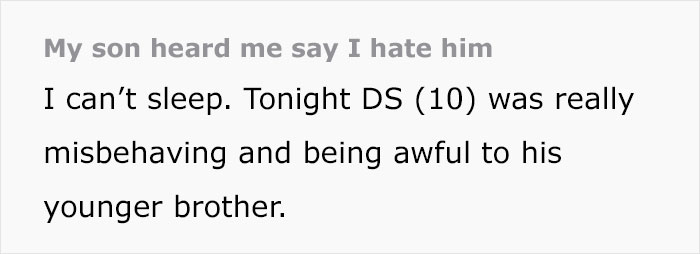
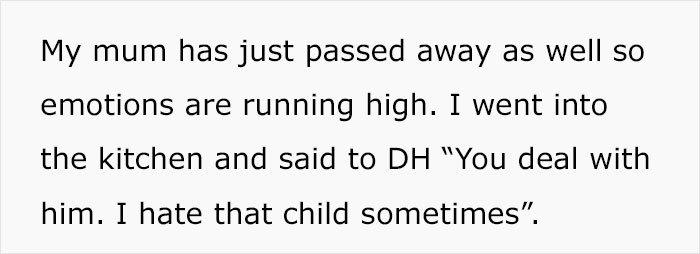

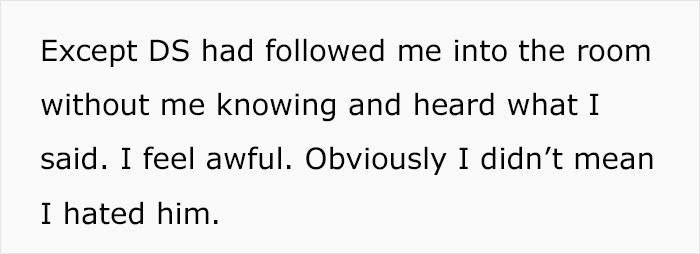
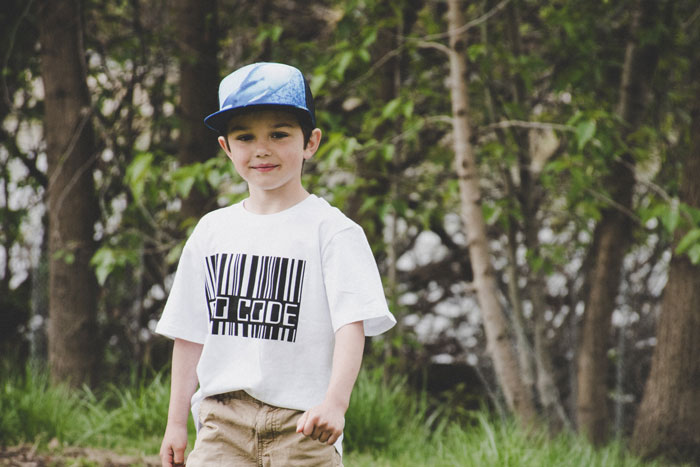
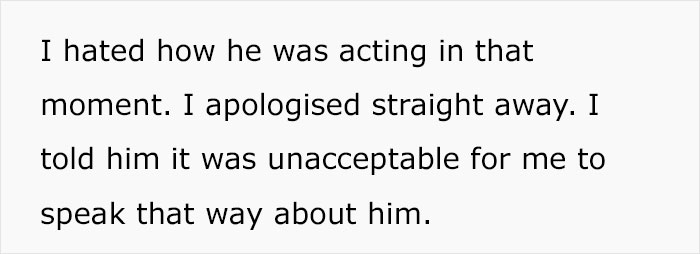
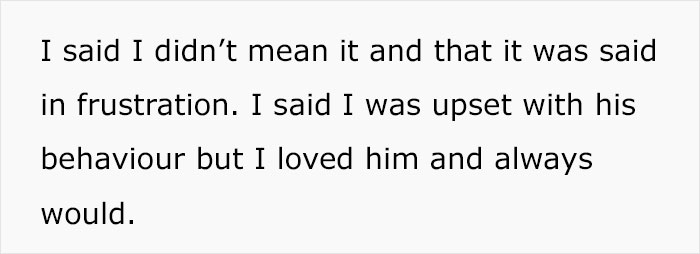




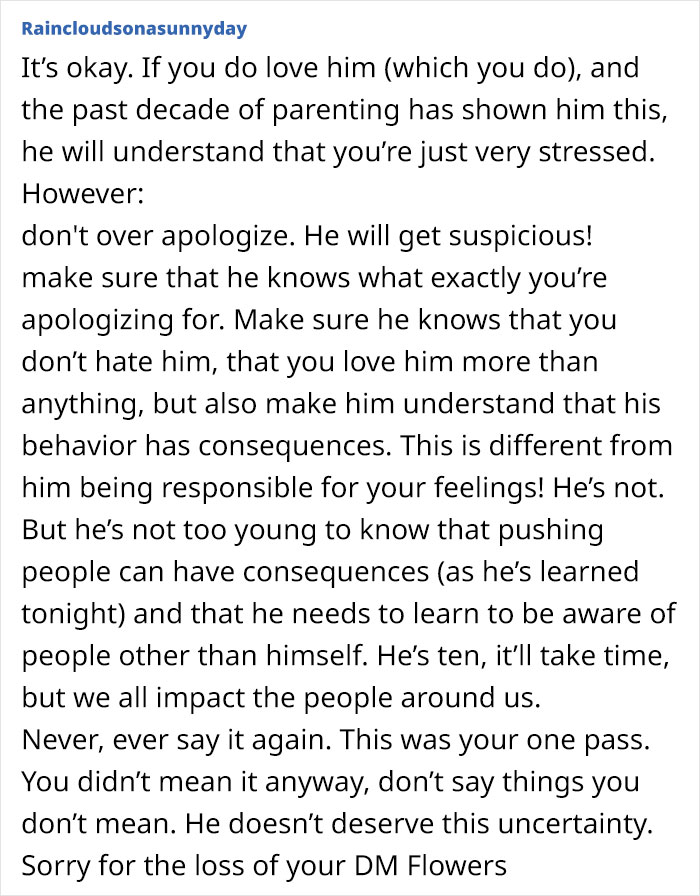


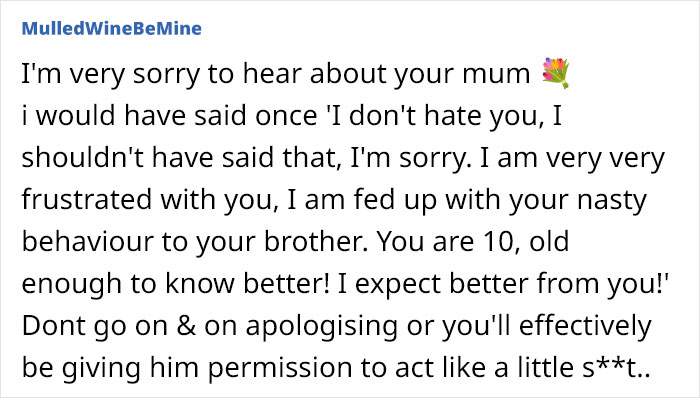
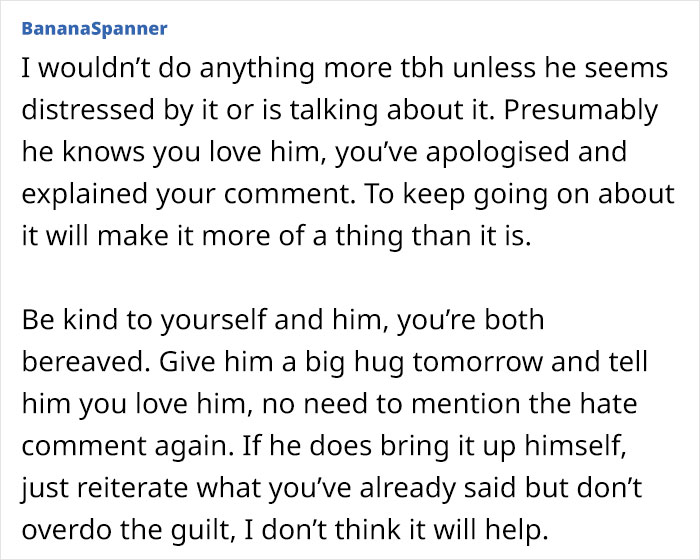
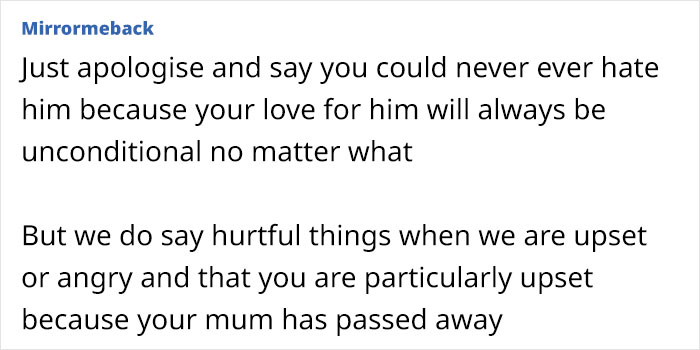
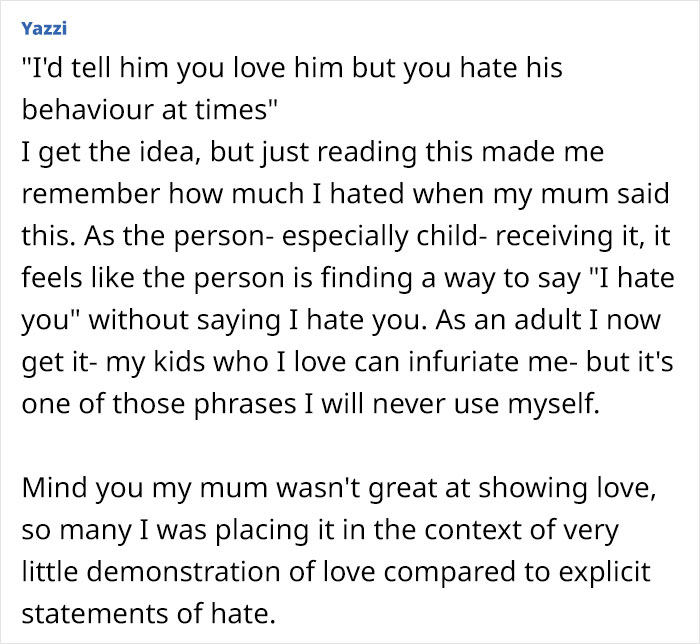

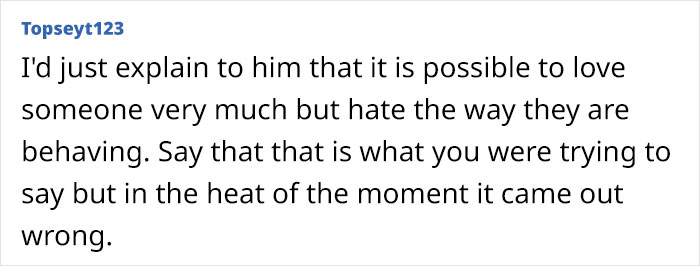











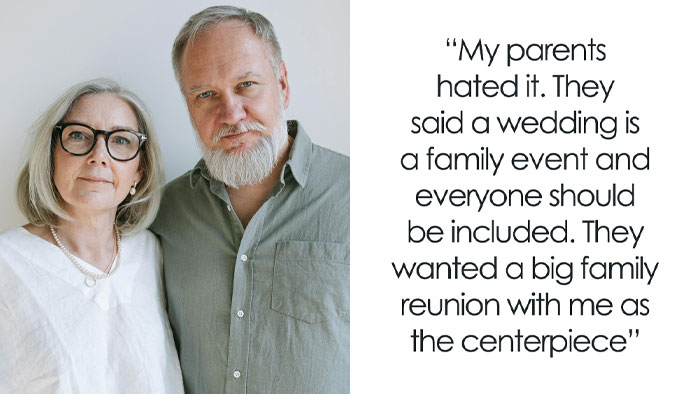










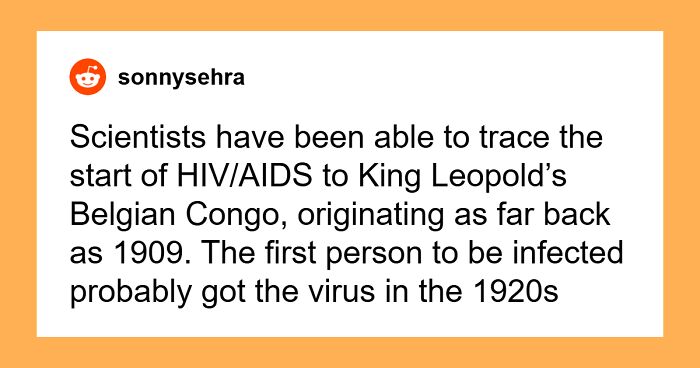













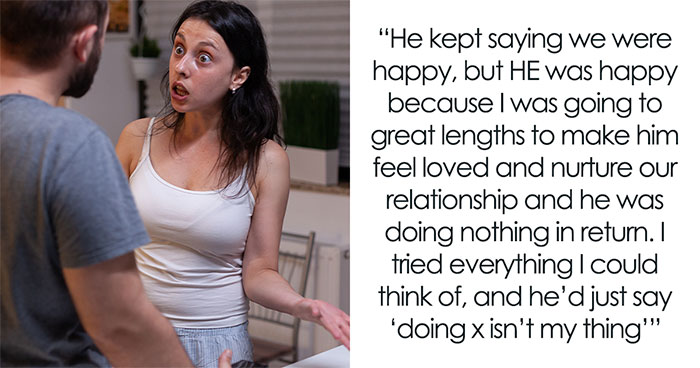




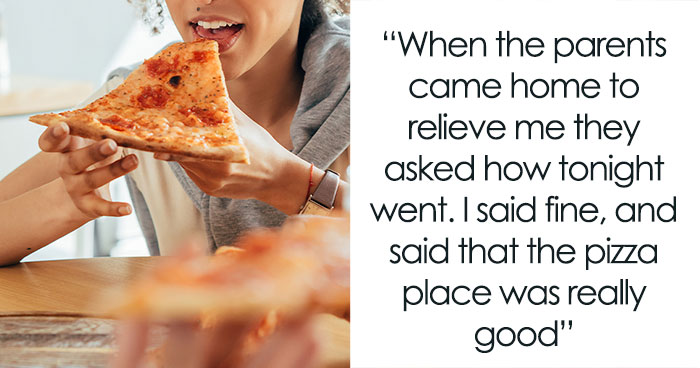
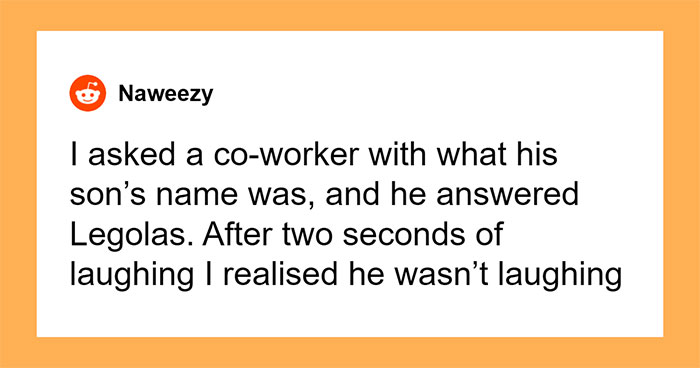
36
17